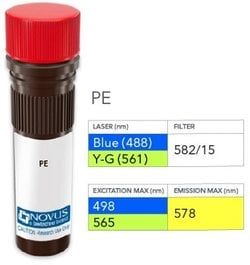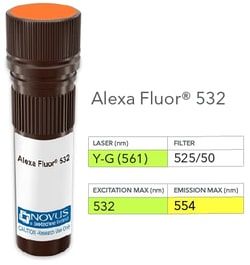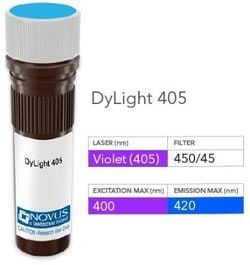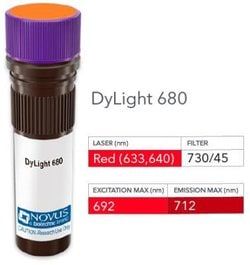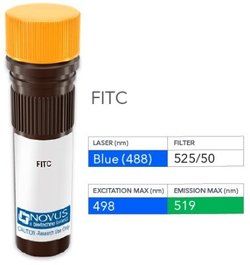VEGFR2/KDR/Flk-1 Antibody (KDR721), FITC, Novus Biologicals™
Manufacturer: Novus Biologicals
Select a Size
| Pack Size | SKU | Availability | Price |
|---|---|---|---|
| Each of 1 | NB006295-Each-of-1 | In Stock | ₹ 57,494.00 |
NB006295 - Each of 1
In Stock
Quantity
1
Base Price: ₹ 57,494.00
GST (18%): ₹ 10,348.92
Total Price: ₹ 67,842.92
Antigen
VEGFR2/KDR/Flk-1
Classification
Monoclonal
Conjugate
FITC
Formulation
PBS with 0.05% Sodium Azide
Gene Symbols
KDR
Immunogen
Recombinant human VEGFR2/KDR/Flk-1 protein (Uniprot: P35968)
Quantity
0.1 mL
Research Discipline
Angiogenesis, Apoptosis, Cancer, Cell Biology, Cellular Markers, Endothelial Cell Markers, Hematopoietic Stem Cell Markers, HIF Target Genes, Hypoxia, Phospho Specific, Signal Transduction, Stem Cell Markers, Tumor Suppressors, Tyrosine Kinases
Test Specificity
CD309, also known as VEGFR2, KDR3, and Flk-1 (mouse), is a type I transmembrane glycoprotein. It is a member of the CSF-1/PDGF receptor family of type III tyrosine kinase receptors. Human VEGFR2 is mainly expressed by endothelial cells, embryonic tissues, and megakaryocytes. It plays an important role in the regulation of angiogenesis, vasculogenesis, and vascular permeability. The ligands of VEGFR2 include VEGF-A, VEGF-C, VEGF-D, and VEGF splice isoforms. Ligation of VEGFR2 with its ligands results in the receptor dimerization and auto-phosphorylation, stimulating endothelial cell proliferation and migration.
Content And Storage
Store at 4°C in the dark.
Applications
Flow Cytometry, ELISA, Immunohistochemistry, Immunocytochemistry, Immunofluorescence, Immunohistochemistry (Frozen)
Clone
KDR721
Dilution
Flow Cytometry, ELISA, Immunohistochemistry, Immunocytochemistry/Immunofluorescence, Immunohistochemistry-Frozen
Gene Alias
CD309, CD309 antigen, EC 2.7.10, EC 2.7.10.1, Fetal liver kinase 1, fetal liver kinase-1, FLK-1, FLK1tyrosine kinase growth factor receptor, Kinase insert domain receptor, kinase insert domain receptor (a type III receptor tyrosine kinase), Protein-tyrosine kinase receptor flk-1, soluble VEGFR2, vascular endothelial growth factor receptor 2, VEGFR, VEGFR2, VEGFR-2
Host Species
Mouse
Purification Method
Protein A or G purified
Regulatory Status
RUO
Primary or Secondary
Primary
Target Species
Human
Isotype
IgG1 κ
Related Products
Description
- VEGFR2/KDR/Flk-1 Monoclonal specifically detects VEGFR2/KDR/Flk-1 in Human samples
- It is validated for Flow Cytometry, Immunocytochemistry/Immunofluorescence.


